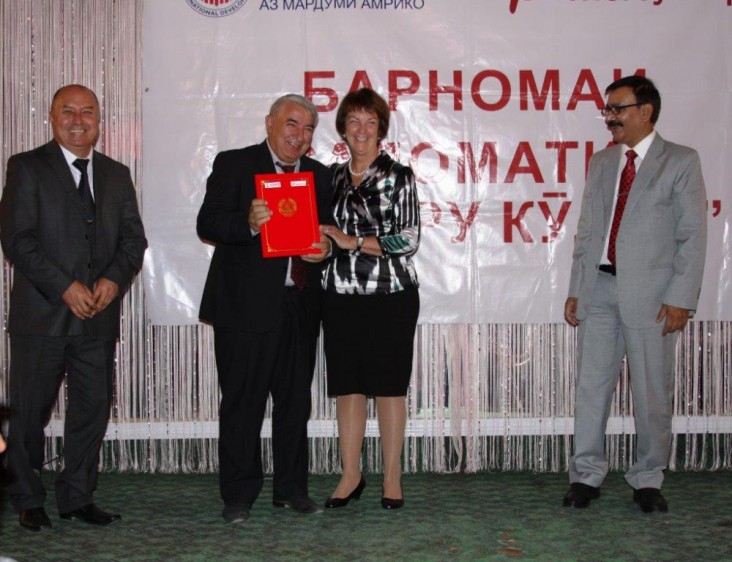
U.S. Government Delivers Small Medical Equipment for Rural Clinics in Khatlon, Tajikistan
For Immediate Release
Qurghonteppa, Tajikistan, October 1, 2014 - U.S. Ambassador Susan M. Elliott presented medical equipment for the people of Khatlon region to Head of the Department of organization of health services for mothers and children, and family planning of Ministry of Health and Social Protection of Population Dr. Sherali Rahmatulloev. Representatives of the U.S. Agency for International Development (USAID) and Mercy Corps International participated in the ceremony along with representatives of Khatlon regional and district governments and district health center personnel.
The ceremony marked the provision of medical equipment to 355 rural health facilities in order to improve the delivery of primary health care services, especially to mothers and children, in Khatlon region. The items included scales, blood pressure cuffs, stethoscopes, thermometers, and tonometers, among others. The event emphasized the importance of quality health services in prevention and treatment of undernutrition in Khatlon, the U.S. Government’s Feed the Future geographical focus area. USAID procured the equipment as part of its Maternal and Child Health project, implemented by Mercy Corps International.
Ambassador Elliott noted, “Through investments in the health system, we aim to reduce undernutrition and improve the health of children today, so that tomorrow we will witness sustainable development and economic growth of individual communities, provinces, and a whole nation.”
The U.S. Government and its partners work in concert with district and oblast health officials to improve health care in the most impoverished communities. Special attention is given to young mothers and small children because they are particularly vulnerable to poor health conditions and undernutrition. The U.S. Government expects that over 300,000 women of reproductive age and 220,000 children under the age of five will achieve substantially improved health and nutrition status by the end of USAID’s Maternal and Child Health project in September 2016.
Related Press Releases
- 10,000 Community Health Volunteers Receive Equipment from USAID’s Community Capacity for Health Program
- Afghanistan Ministry of Public Health Launches First Data Warehouse for the Health Sector with help from USAID
- USAID and the National Center or Healthy Lifestyles Promotion Conduct Training for Journalists on Tuberculosis Reporting







Comment
Make a general inquiry or suggest an improvement.